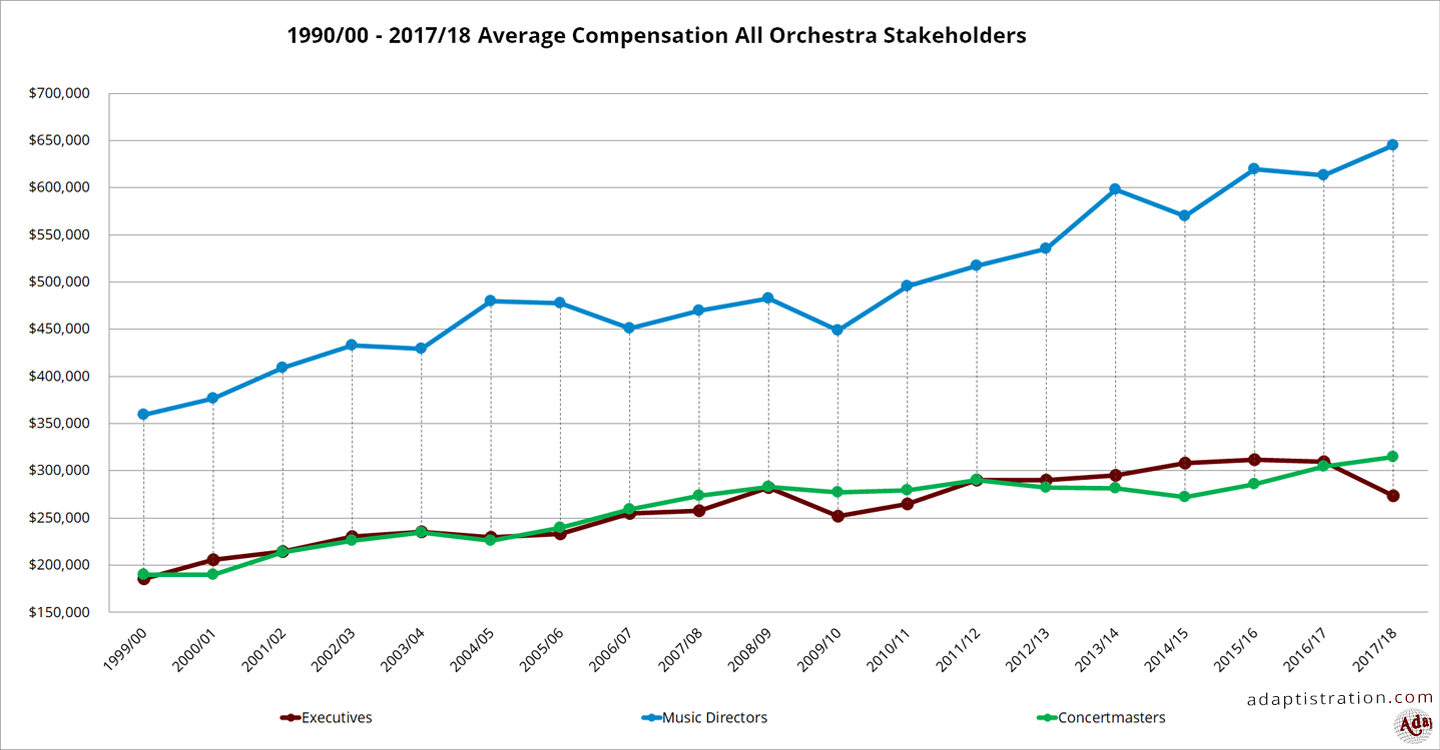Each year, one of the most popular items in the orchestra compensation reports is a big picture overview of all compensation alongside Total Expenditure figures. If you’ve been looking for something that shows all the report values in a single chart, this is your article.
Did you know? Direct links to most of the orchestra’s financial disclosure documents at guidestar.org are available in the Orchestra Financial Reports or you can save yourself dozens of hours by picking them up by season at the Adaptistration Store since the information is no longer available here.
19 Year Trends
Although the Orchestra Compensation Reports have been around since 2005 (which covered the 2003/04 season) my 990 archive extends back through the 1999/00 season. Consequently, this overview article is an excellent vehicle for reaching back into those archives, which are usually reserved for consulting work, and extracting information to share.
To that end, let’s take a look at how each stakeholder group has fared over the years.

The Deliberation Continues
When the compensation reports were launched back in 2005, there was a great deal of reader discussion about each stakeholder group’s respective value. Those were paired with questions about why stakeholder groups didn’t share comparatively equal gains and losses across seasons.
It would be a disservice not to point out that this year’s compensation reports are coming out amid the COVID-19 pandemic when all but a handful of orchestras have been shuttered for months and some have cancelled part or all of next year’s season.
Since its inception, the purpose of the Orchestra Compensation Reports is to help reinforce the value of transparency and inspire patrons to create a stronger connection with their local orchestra and how it functions.
To that end, it has been wonderful watching discussions across social media and other media outlets unfold, doubly so during this enormously challenging time.
Yes, there’s always going to be an element of salaciousness but that quickly melts away into more meaningful discussions surrounding the systems used to determine whether the field is rewarding effort or achievement.


